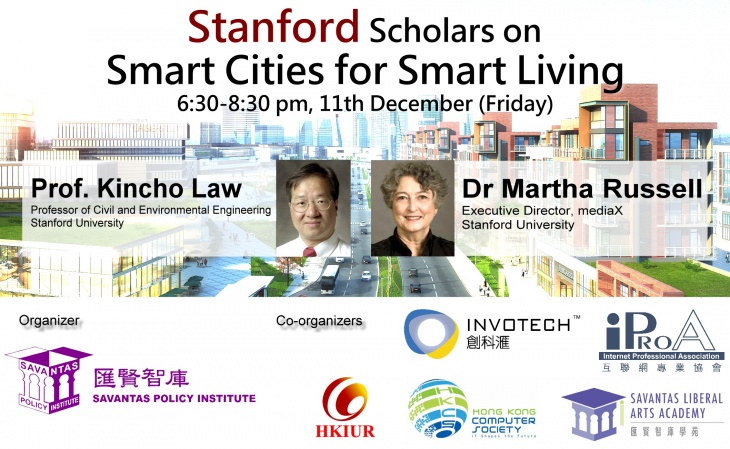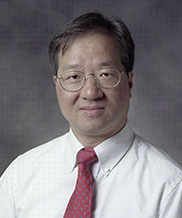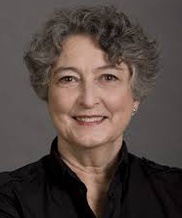Smart Cities for Smart Living
The technological advances in sensors, connectivity and data now provide a perfect storm of change – for smart cities, smart workplaces, smart education, and smart communities. Yet, time and again, poor decisions derail this potential. In order to move forward, we must be both the architects and the engines of change. The question before us is: Can we improve the quality of our decisions in order to move forward faster?
Professor Kincho H. Law, Professor of Civil and Environmental Engineering, and Dr Martha G. Russell, Executive Director of mediaX at Stanford University will talk on the topic of “Smart Cities for Smart Living”.
CLICK HERE for more information.

The question before us is: Are we moving forward – and, are we doing so fast enough?
Never Miss An Event; Join Our Email Community
Presenters

Kincho Law, Smart Cities or Smart Communities. Advances in information systems, sensing devices, communication networks, mobile technologies have been and will continue transforming our societies. Technology is being used for personal and social reasons. We have seen a sea change in the use of technology in everyday life and people attitudes towards digital commerce and governance in many of the fast growing cities. Driven by technologies and potential economic benefits, civic leaders, technologists and companies are embracing and investing to build “Smart Cities.” The rapid deployment of new technology in many urban cities has changed the landscape on how people interact and communicate. A digitally connected world not only changes the business environment, contributing to the social disruptions of the economy, but also plays a big role in shaping communities and urban life. But, what constitutes a city or a community to be “smart?”

Martha Russell, Smart Citizens, Smart Cities and Smart Living. We stand on the thresh hold of abundance. Higher productivity is possible. Better quality of life is possible. We have new opportunities in personal and family wellness. The technological advances in sensors, connectivity and data now provide a perfect storm of change – for smart cities, smart workplaces, smart education, and smart communities. In this perfect storm, relationships, trust and vision are essential for innovation leadership. Shared vision among smart citizens allows people operating independently to arrive together at the same future. Massive data permits continuous feedback for high quality decisions. Change is an imperative. Change is continual. In order to move forward, we must be both the architects and the engines of change.